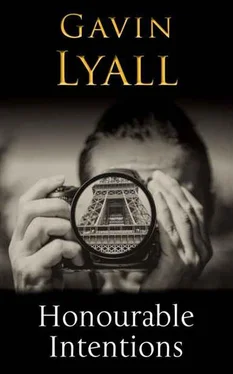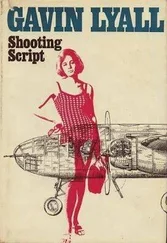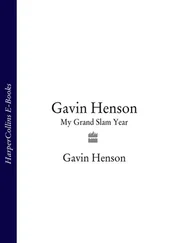Gavin Lyall - Honourable Intentions
Здесь есть возможность читать онлайн «Gavin Lyall - Honourable Intentions» весь текст электронной книги совершенно бесплатно (целиком полную версию без сокращений). В некоторых случаях можно слушать аудио, скачать через торрент в формате fb2 и присутствует краткое содержание. Год выпуска: 2014, Издательство: PFD Books, Жанр: Шпионский детектив, Исторический детектив, на английском языке. Описание произведения, (предисловие) а так же отзывы посетителей доступны на портале библиотеки ЛибКат.
- Название:Honourable Intentions
- Автор:
- Издательство:PFD Books
- Жанр:
- Год:2014
- ISBN:нет данных
- Рейтинг книги:4 / 5. Голосов: 1
-
Избранное:Добавить в избранное
- Отзывы:
-
Ваша оценка:
- 80
- 1
- 2
- 3
- 4
- 5
Honourable Intentions: краткое содержание, описание и аннотация
Предлагаем к чтению аннотацию, описание, краткое содержание или предисловие (зависит от того, что написал сам автор книги «Honourable Intentions»). Если вы не нашли необходимую информацию о книге — напишите в комментариях, мы постараемся отыскать её.
Honourable Intentions — читать онлайн бесплатно полную книгу (весь текст) целиком
Ниже представлен текст книги, разбитый по страницам. Система сохранения места последней прочитанной страницы, позволяет с удобством читать онлайн бесплатно книгу «Honourable Intentions», без необходимости каждый раз заново искать на чём Вы остановились. Поставьте закладку, и сможете в любой момент перейти на страницу, на которой закончили чтение.
Интервал:
Закладка:
Ranklin looked on, puzzled, as Guillet fumbled the time-piece from his waistcoat pocket and offered it.
“No, show us yourself. Just open it and re-set the time to an hour ahead.”
Then Quinton’s tactic became clear. Guillet took two tries to open the case and was quite unable to set the hands.
The lawyer watched with a slight, patient smile. When Guillet’s struggle had got almost unbearably painful, he asked: “Is that your own watch?”
The relief on Guillet’s face was obvious. “No. I borrowed it. My own is broken. Since two days ago.”
“And is this one very different?”
“Yes, quite different.”
“Perhaps now you would show it to his worship.”
The usher passed it up to the magistrate, who fiddled with it for a few seconds then handed it back impassively. It was quite obviously a standard watch.
But Quinton didn’t labour the point any further. “What time do you start work?”
“At four in the morning. Usually.”
“Yet on that evening, little more than four hours before you were due to start work, you were still out on the street?”
“Sometimes I stay up late.”
“Where had you been that night?”
“In a big cafe in the Rue Manin.”
“Whereabouts in the Rue Manin?”
“Towards the Rue de Crimee.”
Quinton pushed his glasses up onto his forehead and peered short-sightedly at a guide-book map. “Ah yes. And to reach your lodging you turned down the Rue du Rhin . . . Do you then turn left or right into the Rue Petit?”
“Right.”
“And coming up the Rue du Rhin, you saw Mr Langhorn carrying a tin of petrol – is that what you said?”
“Yes.”
“But obviously you could not see the petrol, could you? How do you know it was not an empty tin?”
“He was leaning with the weight of it.”
Quinton appeared foxed by this. He frowned, play-acted himself carrying something heavy, then seemed to get the point. Guillet smiled and relaxed.
“What was the weather like?”
“It was clear. It had rained earlier in the day but not for several hours. Now the streets were mostly dry,” Guillet replied confidently, as if that had been an expected question.
“Why did you say he was going towards the police station rather than anywhere else? Was he on that side of the road?”
“Yes.”
“And you were hurrying home to bed, weren’t you?”
“Not hurrying, no.”
“But you didn’t pass close to him, did you?”
“Yes. Very close.”
“Very close? How close?”
“Less than a metre.”
Quinton nodded. “Why did you cross the road?”
Guillet was baffled and suddenly suspicious. “I did not say I crossed the road.”
“You turned right into the Rue du Rhin, you were going to turn right out of it. Why did you cross to the other side, the police station side, where you said Mr Langhorn was?”
Quinton’s opposite number, the prosecutor whose name Ranklin hadn’t caught, stood up and said mildly: “Your worship, I feel that Mr Quinton is hectoring the witness.”
The magistrate nodded but spoke to Quinton: “May I see your map for a moment?”
Quinton passed it to the usher, pointing out the locality, and it went up to the magistrate. He peered closely for a time, then looked up. “Well, Monsieur Guillet?”
“I made a mistake. Langhorn was on my side of the road. But still going up the hill towards the police station.”
“A mistake,” Quinton said, and after waiting a moment, the interpreter said: “ Une erreur .”
Quinton selected one of his papers and glanced at it, then: “The street lighting in the Rue du Rhin is turned off at eleven o’clock, is it not?”
“I do not know . . . No, it can’t have been.”
Quinton frowned and consulted the paper again. “You say it was on?”
“I think so.” Even at that distance, Ranklin could tell Guillet was sweating.
“Now you only think so?”
When Guillet didn’t answer, the magistrate said: “What authority do you have for suggesting that the street was no longer lit at that time, Mr Quinton?”
“None whatsoever, your worship,” Quinton said blithely. “I had hoped to get an official answer to my query to the relevant authorities by this time but, perhaps owing to the Easter holidays . . .”
The magistrate frowned down at his papers, thinking. Finally he said: “So far, I cannot say that this witness has made an entirely favourable impression . . . This seems to me to be one point of fact which we should have cleared up . . . Do you think you would have an answer by tomorrow?”
“I would hope so, your worship, but I am quite prepared-”
“No, I’d like to see this sorted out before we proceed any further. I’ll adjourn the hearing until ten tomorrow morning.”
Quinton bowed perfunctorily, but as he turned away from the bench, his face was a black scowl. He’d had Guillet on the run, and now the witness had time to get his second wind and some intensive coaching. Ranklin sympathised, but had no time to commiserate.
4
Outside the court, a Miss Teal from the Bureau’s outer office was waiting. She was a spinster of a certain age and impeccable background – indeed, the whole Bureau came of good backgrounds; it was the foregrounds of its agents which had become a little muddy.
Ranklin took her arm and whispered urgently: “I’m James Spencer and we’re hired by the American consulate to safeguard Langhorn’s interests. That’s the girl over there, her name’s Mademoiselle Collomb. Offer her a taxi-ride to her lodgings, a cup of tea, any help we can give.”
Miss Teal moved in, radiating respectable purpose – which was why Ranklin had telephoned for her. And once she had had time to establish their bona fides, he followed up.
“Mademoiselle Collomb? Je suis James Spencer . . .” He took over the fabrication about the consulate and Berenice listened with a subdued, suspicious pout. But at least listened, and perhaps his reasonably colloquial French helped. He finished up: “And do you understand what will happen next?”
A shrug and a brief shake of her head.
“I have talked to M’sieu Langhorn’s lawyer. He-”
“Lawyers.” She spat the word.
Ranklin smiled deprecatingly. “But in matters of law, we are in their hands. Now-”
“Then why did he not let me tell the truth? Why did that meat porter tell those lies? You are all the same as the flics: bourgeois liars.”
Ranklin suddenly saw that their feigned respectability had been a mistake: if Berenice was an anarchist, too, then he and Miss Teal were just more shepherds chivvying the toiling masses to the slaughter-yards – or whatever. Still, he now had to play the hand he had dealt himself.
“I have no concern with politics, only justice.” And he said it with a pained expression that constituted a third lie. “I can only try to explain what Maitre Quinton explained to me. So would you like a cup of t-coffee?”
She shrugged sullenly but said, “If you want.”
As they turned towards the Strand, Ranklin saw Gorkin watching them from the court steps. But there was no reason why Mr Spencer shouldn’t be talking to the girl-friend of the accused; he could have been more secretive if need be.
They weaved through a blue tide of policemen spilling out from the station next door, Berenice scowling and muttering while Ranklin kept up a flow of small talk. “Are your lodgings comfortable?”
“I am staying with camarades.”
“And do you know London well? A varied city. Not so beautiful as Paris, of course-”
“Do you know La Villette?”
“Ah . . . I have passed through it . . .”
Читать дальшеИнтервал:
Закладка:
Похожие книги на «Honourable Intentions»
Представляем Вашему вниманию похожие книги на «Honourable Intentions» списком для выбора. Мы отобрали схожую по названию и смыслу литературу в надежде предоставить читателям больше вариантов отыскать новые, интересные, ещё непрочитанные произведения.
Обсуждение, отзывы о книге «Honourable Intentions» и просто собственные мнения читателей. Оставьте ваши комментарии, напишите, что Вы думаете о произведении, его смысле или главных героях. Укажите что конкретно понравилось, а что нет, и почему Вы так считаете.











